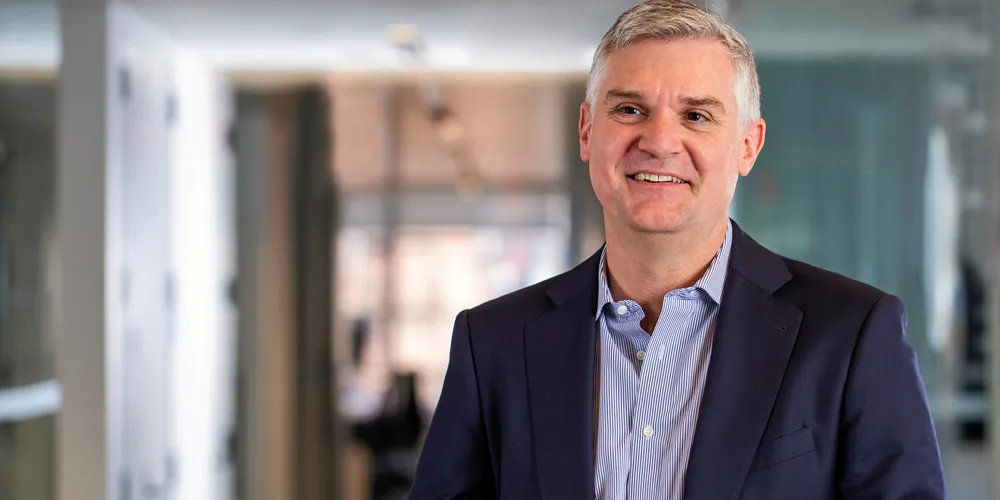'Get creative' | Orsted's Hardy urges states to be open to 'uncompliant bids' to enable US offshore wind ramp
Head of Danish developer's Americas unit said developers could apprise procurement agencies to new approaches in 'complicated industry'

Few developers have weathered the upheaval of US offshore wind as Danish developer Orsted.
The global pacesetter with over a decade of experience in the American sector is the first to successfully bring a commercial scale project to market – its 132MW South Fork Wind array is fully constructed and is delivering power to the Long Island, New York grid.
The Dane has also withdrawn more than 3GW of capacity that it deemed no longer viable amid surging inflation and interest rates that have driven costs for the US sector skyward and claimed half of the nation's contracted projects.
The developer has two more projects permitted and financed, including its 920MW Sunrise Wind to New York that survived withdrawal from its original offtake contract to be successfully rebid into the state’s round 4.
Evolution of solicitation rules that include inflation adjustment mechanisms by state procurement agency New York State Energy Research and Development Authority (Nyserda) was key to the successful rebid.
“We've seen maturation across the industry in the US with one form or another of inflation sharing, which is a first step,” Hardy told American Clean Power Association (ACP)’s annual conference in Minneapolis.
“But in these long projects, there are other risks and contemplating ways to do risk sharing over that period so that we don't build in undue risk premiums that ratepayers pay” is a central concern.
Hardy added: “There could be an opportunity where states put their wish list out there and have their compliant bid requirements, but also allow developers to submit uncompliant bids where we can maybe share what levers we have."
"Then the state can choose from those levers to decide they want to deviate from their strict requirements in order to meet either cost or schedule or other things."
Hardy underlined that offshore wind is a complicated industry. "So, sometimes there may be things that the state hasn't thought about that the developer could introduce through the procurement process that could open their eyes to different possibilities,” he said.
Allowing developers some creativity and the ability to share what they know of our challenges that will either cost them time or money and then, through the procurement process, "potentially allowing for some deviations if they in the evaluation makes sense,” he added.
Nyserda CEO Doreen Harris has been at the centre of the sector turmoil, having procured and withdrawn 8GW of capacity over the past six months as the industry seeks for its long-awaited “reset”.
The agency which has 1.7GW under contract, including Equinor’s 804MW Empire Wind 1, has opened a request for information (RfI) on improving its process to build a more resilient industry.
“This is a extraordinarily dynamic environment that we're working within,” she told the conference.
“When we run our next competitive solicitation, we want to make sure we've heard from the market as to where those risks exists today so we can take stock and design an RfP [request for proposals] around it.”
Despite the "churn" in early projects, Harris said Nyserda is not backing off its rapid pace of procurements.
“I really feel quite strongly that yes, we need to be running solicitations,” she said. “We need to fill our pipeline.”
“More than anything else, what we need to be doing is building projects,” she added, to build that momentum and “get the market growth necessary to take those next steps into the next generations of offshore wind deployments.”
(Copyright)